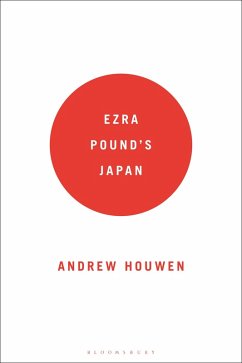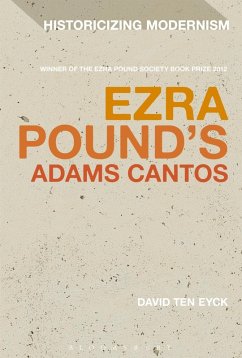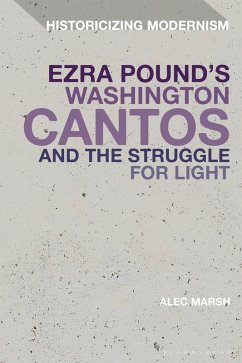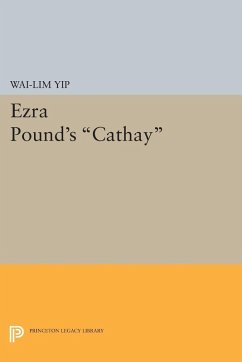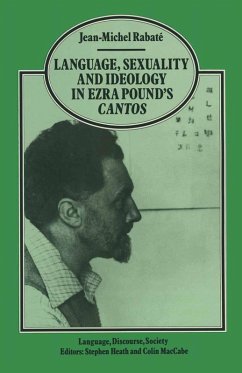
Ezra Pound's Eriugena (eBook, PDF)
Versandkostenfrei!
Sofort per Download lieferbar
31,95 €
inkl. MwSt.
Weitere Ausgaben:

PAYBACK Punkte
16 °P sammeln!
Winner of the Ezra Pound Society Book Prize 2014 Ezra Pound's sustained use of ancient and medieval philosophical sources, particularly those within the Neoplatonic tradition, is well known. Yet the specific influence of the ninth-century theologian Johannes Scottus Eriugena on Pound's poetry and prose has received limited scholarly attention. Pound developed detailed plans to publish a commentary on Eriugena alongside his translations of two of the books of Confucianism, plans that ultimately went unrealised. Drawing on unpublished notes, drafts and manuscripts amongst the Ezra Pound papers h...
Winner of the Ezra Pound Society Book Prize 2014 Ezra Pound's sustained use of ancient and medieval philosophical sources, particularly those within the Neoplatonic tradition, is well known. Yet the specific influence of the ninth-century theologian Johannes Scottus Eriugena on Pound's poetry and prose has received limited scholarly attention. Pound developed detailed plans to publish a commentary on Eriugena alongside his translations of two of the books of Confucianism, plans that ultimately went unrealised. Drawing on unpublished notes, drafts and manuscripts amongst the Ezra Pound papers held at Yale University, this book investigates the pivotal role of Eriugena in Pound's thought and, perhaps surprisingly, in his deployment of non-Western philosophical traditions.




